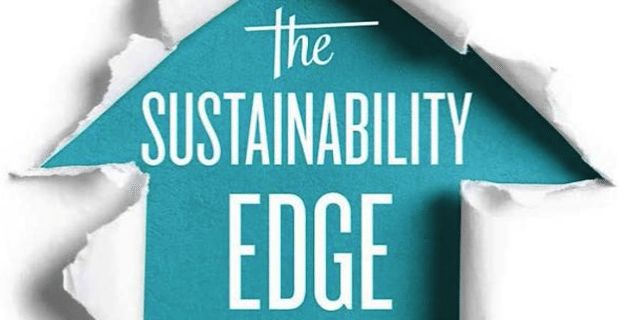
By Suhas Apte, President of Apte Consultants and Jagdish N. Sheth, Charles H. Kellstadt Professor of Marketing, Goizueta Business School at Emory University
The challenges facing global business leaders today are not only increasing in numbers, but also in magnitude. This sentiment has been echoed in the many discussions we have had with executives around the world; they are searching for new approaches that help secure competitive advantages and ensure long-term viability in an ever-changing marketplace. In light of these challenges and opportunities, business leaders must encourage transformative change from traditional and often unsustainable approaches and practices to a more strategic position, by investing in more sustainable and innovative processes, practices, and systems. We believe business leaders can spark this transition by using a 360-degree approach to stakeholder engagement.
We have developed a clear, step-by-step roadmap to help business leaders fine tune their stakeholder engagement strategies. The roadmap is based on our research and examination of how best-in-class companies are leveraging key stakeholder groups to advance their sustainability strategies, and fostering an internal culture where sustainability is embedded into the organization’s “DNA.” The proposed roadmap calls for company leaders to effectively engage and energize all of their key stakeholders, and for all businesses and stakeholders to embrace sustainability as a key driver behind their joint mission. We believe this is critical to addressing current and future societal and environmental challenges.
The 360-Degree Approach to Stakeholder Engagement
This approach is explained through our Sustainability Stakeholders Framework, which is depicted in the graphic below. The nine key sustainability stakeholder groups are identified in the outer portion of the graphic. These groups are further organized into three classifications based on the intrinsic nature of their impact on business: direct impact, indirect impact, and enabler impact.

These key stakeholder groups have different impacts on businesses, and therefore need to be engaged differently. To be successful, companies need to meet and preferably exceed the expectations of the direct impact stakeholders; develop long-lasting partnerships with the enabling stakeholders; and utilize the resources and knowledge base of the indirect impact stakeholders to add value to the company. Examples of the specific steps business leaders can take to effectively engage each of these stakeholder groups are as follows:
- Motivating Consumers – Make sustainability relevant to your business’s consumers by effectively promoting responsible product choices and messaging and, where practical, providing educational opportunities. Communicate the “BIG purpose” for your brand’s existence. Then, design products and services that make consumption meaningful and proactively share their impacts on the earth and society in a transparent way.
- Collaborating with Customers – Reach out to traditional customers, including business-to-business relationships, by creatively innovating joint sustainability initiatives to derive collective competitive advantages. These advantages can positively contribute to brand value or reputation and/or result in meaningful reductions in supply chain costs to both parties.
- Inspiring Employees – Recognize and reward talented, sustainability-minded employees that can act as sustainability ambassadors for your company. This employee group will serve to attract, engage and retain new, like-minded pool of talent, especially millennials.
- Nurturing Suppliers – Extend and accelerate your company’s sustainability agenda by leveraging suppliers to ensure workers’ rights in the supply chain, as well as on both the value and innovation fronts.
- Investing in Communities – Develop a symbiotic, sustainability-centered relationship with relevant communities in order to enhance the quality of life and the environment, ensure healthy markets, and insure a steady supply of qualified employees.
- Attracting Investors – Communicate and promote the sustainability programs and initiatives to investors; show how they improve shareholder’s returns or reduce sustainability-associated risks while making this a better planet.
- Leveraging Media – Leverage and deploy a strategic and modern (social) mix of media in order to promote your company’s sustainability and growth agenda, resulting in lasting business advantage.
- Engaging Governments – Participate and promote public-private partnerships, which help build business advantage and simultaneously promote and legitimize your company’s sustainability credentials.
- Partnering with NGOs – Proactively tap the knowledge, resources, and passions of subject matter expert NGO’s/thought leaders and integrate their valuable insights into your policy positions and innovation processes for developing existing and new products and services.
Company leaders who successfully embark on this roadmap and effectively engage and energize key stakeholders are poised to enjoy superior and unique competitive advantages. These advantages will be extremely difficult for competitors to replicate.
In our soon to be released book, THE SUSTAINABILITY EDGE, we share detailed steps on how to bring to action the stakeholder sustainability framework along with best-in-class examples and case studies. The book includes a Stakeholder Sustainability Audit tool that allows companies to both track and benchmark their progress towards obtaining their own sustainability edge. The audit tool shared in the book is also available as a complimentary web-based survey designed to capture stakeholder’s perception of where any company is vis-à-vis their sustainability journey.
For more information, and the authors’ easy to use, on-line Stakeholder Sustainability Audit tool, please visit www.thesustainabilityedge.com. __________
__________

Suhas Apte is President of Apte Consultants and a partner in the Blue Earth Network, helping businesses discover breakthrough opportunities. Apte, who served as Global Sustainability Officer and President of European Family Care business at Kimberly-Clark, has extensive CPG industry experience and sustainability credentials based on a broad career working in Asia-Pacific, developing markets, Europe, and the United States. He has a degree in mechanical engineering as well as an MBA from the University of Pennsylvania’s Wharton School of Business.

Jagdish N. Sheth is the Charles H. Kellstadt Professor of Marketing in the Goizueta Business School at Emory University. He has served on the faculties of Columbia University, MIT, University of Illinois, and the University of Southern California. An expert on consumer demographics, the impact of technology on society, and the globalization of competition, he has been an advisor to numerous corporations all over the world. He has published over 300 research papers, more than 30 books, and has a Ph.D. in Behavioral Sciences and an MBA from the University of Pittsburgh as well as a Bachelor’s of Commerce degree from the University of Madras.
